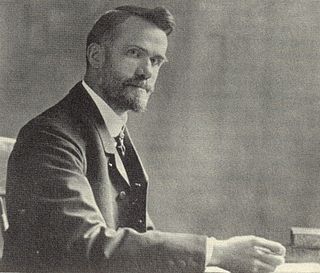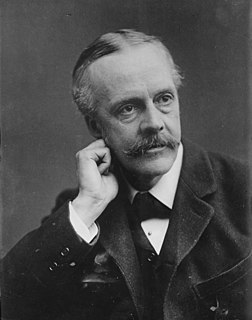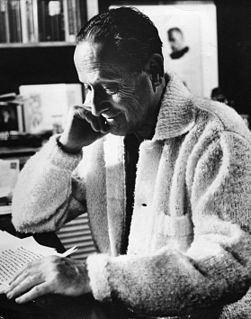A Quote by John Donne
All Kings, and all their favorites, All glory of honors, beauties, wits, The sun itself, which makes times, as they pass, Is elder by a year, now, than it was When thou and I first one another saw: All other things, to their destruction draw, Only our love hath no decay; This, no tomorrow hash, nor yesterday, Running, it never runs from us away, But truly keeps his first, last, everlasting day.
Related Quotes
I saw full surely that ere God made us He loved us; which love was never slacked, nor ever shall be. And in this love He hath done all His works; and in this love He hath made all things profitable to us; and in this love our life is everlasting. In our making we had beginning; but the love wherein He made us was in Him from without beginning: in which love we have our beginning. And all this shall we see in God, without end.
For the rest of my life there are two days that will never again trouble me. The first day is yesterday with all its blunders and tears, follies and defeats. Yesterday has passed away, beyond my control forever. The other day is tomorrow with all its pitfalls and threats, its dangers and mystery. Until the sun rises again I have no stake in tomorrow, for it is still unborn.
I compare the troubles which we have to undergo in the course of the year to a great bundle of sticks, far too large for us to lift. But God does not require us to carry the whole at once. He mercifully unties the bundle, and gives us first one stick, which we are to carry today, and then another, which we are to carry tomorrow, and so on. This we might easily manage, if we would only take the burden appointed for us each day; but we choose to increase our troubles by carrying yesterday's stick over again today, and adding tomorrow's burden to our load, before we are required to bear it.
Let me twine Mine arms about that body, where against My grained ash an hundred times hath broke And scarr'd the moon with splinters: here I clip The anvil of my sword, and do contest As hotly and as nobly with thy love As ever in ambitious strength I did Contend against thy valour. Know thou first, I loved the maid I married; never man Sigh'd truer breath; but that I see thee here, Thou noble thing! more dances my rapt heart Than when I first my wedded mistress saw Bestride my threshold.
Let us look upon a crucified Christ, the remedy of all our miseries. His cross hath procured a crown, his passion hath expiated our transgression. His death hath disarmed the law, his blood hath washed a believer's soul. This death is the destruction of our enemies, the spring of our happiness, and the eternal testimony of divine love.
Art thou in misery, brother? Then I pray Be comforted. Thy grief shall pass away. Art thou elated? Ah, be not too gay; Temper thy joy: this, too, shall pass away. Art thou in danger? Still let reason sway, And cling to hope: this, too, shall pass away. Tempted art thou? In all thine anguish lay One truth to heart: this, too, shall pass away. Do rays of loftier glory round thee play? Kinglike art thou? This, too, shall pass away! Whate'er thou art, wher'er thy footsteps stray, Heed these wise words: This, too, shall pass away.
Our possibilities of happiness are already restricted by our constitution. Unhappiness is much less difficult to experience. We are threatened with suffering from three directions: from our own body, which is doomed to decay and dissolution and which cannot even do without pain and anxiety as warning signals; from the external world, which may rage against us with overwhelming and merciless forces of destruction; and finally from our relations to other men. The suffering which comes from this last source is perhaps more painful to us than any other.
Our God...is a consuming fire. And if we, by love, become transformed into Him and burn as He burns, His fire will be our everlasting joy. But if we refuse His love and remain in the coldness of sin and opposition to Him and to other men then will His fire (by our own choice rather than His) become our everlasting enemy, and Love, instead of being our joy, will become our torment and our destruction.
God, we thank you for this earth, our homes; for the wide sky and the blessed sun, for the salt sea and the running water, for the everlasting hills and the never resting winds, for trees and the common grass underfoot. We thank you for our senses by which we hear the songs of birds, and see the splendor of the summer fields, and taste of the autumn fruits, and rejoice in the feel of the snow, and smell the breath of the spring. Grant us a heart wide open to all this beauty; and save our souls from being so blind that we pass unseeing when even the common thorn bush is aflame with your glory.
Yet the timeless in you is aware of life's timelessness, And knows that yesterday is but today's memory and tomorrow is today's dream. And that that which sings and contemplates in you is still dwelling within the bounds of that first moment which scattered the stars into space. Who among you does not feel that his power to love is boundless? And yet who does not feel that very love, though boundless, encompassed within the centre of his being, and moving not from love thought to love thought, nor from love deeds to other love deeds? And is not time even as love is, undivided and paceless?
Imperishable moments and immortal deeds, death itself and love stronger than death, will be as though they had never been. The energies of our system will decay, the glory of the sun will be dimmed and the earth tideless and inert, will no longer tolerate the race which has for the moment disturbed its solitude. Man will go down into the pit and all his thoughts will perish. The uneasy consciousness, which in this obscure corner has for a brief space broken the contented silence of the universe, will be at rest.
How little we have, I thought, between us and the waiting cold, the mystery, death--a strip of beach, a hill, a few walls of wood or stone, a little fire--and tomorrow's sun, rising and warming us, tomorrow's hope of peace and better weather . . . What if tomorrow vanished in the storm? What if time stood still? And yesterday--if once we lost our way, blundered in the storm--would we find yesterday again ahead of us, where we had thought tomorrow's sun would rise?
January is the beginning of a new year for us in the Western world. Let us give to God what belongs to him: the first hours of our day, the first month of the year, the first of our increase, the first in every area of our life. It's devoted... The principle of first fruits is that when you give God the first, he governs the rest and redeems in.
Doug Ford was one of the first of the old pros I saw during my first full year on tour, in 1963. To this day he's the best chipper I've ever seen. One thing Doug did was get the ball onto the green and rolling right away, keeping it as low as possible. He never hit his chips higher than was absolutely necessary.




































